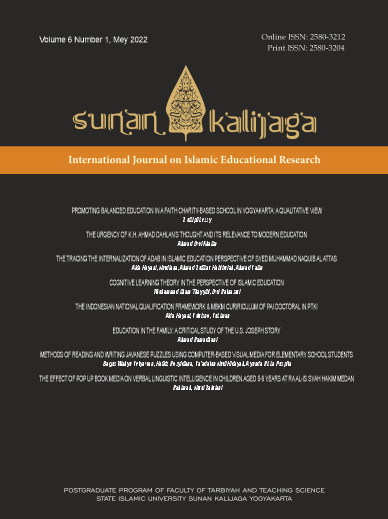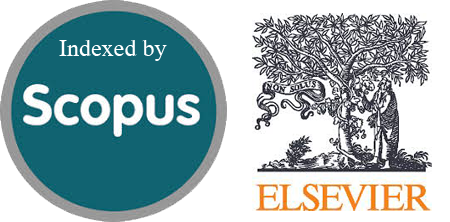PROMOTING BALANCED EDUCATION IN A FAITH CHARITY-BASED SCHOOL IN YOGYAKARTA: A QUALITATIVE VIEW
DOI:
https://doi.org/10.14421/skijier.2022.61.01Keywords:
Charity, elementary school, indigent, moral educationAbstract
The role of charity for needy Indonesians has a long history and tradition. One aspect has been educational goals. Free education for needy children is provided in Indonesia, yet very few reports have been structured to assess success or failure. Using mixed approaches of first-hand solicited data and secondary literature review, the current study was particularly designed to examine the reciprocal roles of donors and recipients. This was done in order to understand how to motivate increased donations and how to improve the likelihood that recipients will benefit in their self-esteem and life skills. Additional perspectives were derived from reports of student educational experiences in Yogyakarta, Indonesia. Findings show that students in Yogyakarta have been waived from tuition, and they have received school equipment and educational logistics for their learning. Several students’ parents in Yogyakarta, however, showed their uneasiness about continuance of children’s education after graduation from elementary public school; they want their children to continue into higher education. The parents also discussed the issue of balancing moral education and science, but their views might contradict the school’s objective of forming students’ attitudes and behavior with spirituality, religious teachings, and moral conduct, such as prayers and Qur’anic memorization.










